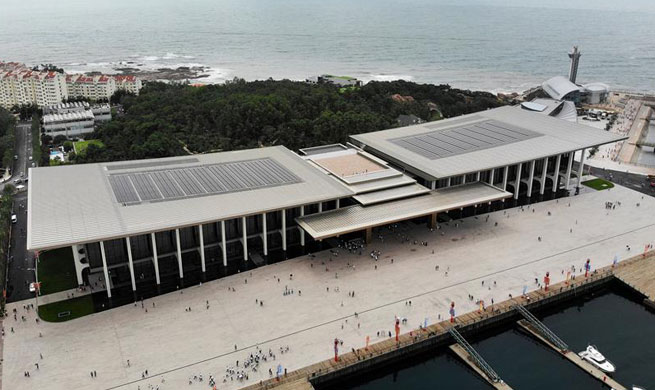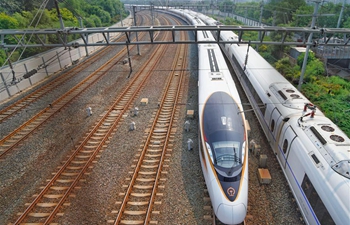BERLIN, July 2 (Xinhua) -- Only a small number of motorists have drawn on financial incentives offered by the government to promote electric mobility in Germany, figures published on Monday by the Federal Office of Economics and Export Control (Bafa) show.
According to Bafa, 66,029 applications have been made under the scheme which was first unveiled two years ago and is scheduled to expire in June 2019. Bafa president Andreas Obersteller highlighted that only 100 million euros (116.2 million U.S. dollars), or "a sixth of the total funds available" had consequently been distributed.
Under the law, German motorists are offered an "environmental bonus" of 4,000 euros for fully-electric cars or 3,000 euros for so-called "Plug-In" hybrid vehicles. The federal government contributed 600 million euros to the scheme while carmakers agreed to match the sum with price-reductions.
The total 1.2 billion euros thus earmarked by Berlin for the "environmental bonus" were seen as a means to boost low- and zero-emissions mobility in Germany and would suffice to cover 300,000 electric vehicles purchases if fully-utilized. Such ambitious hopes were dashed in the detailed figures released by Bafa, on Monday, however, which showed that 38,146 applications for pure electric vehicles and 27,866 for Plug-In hybrid vehicles were so far recorded since the launch of the initiative in 2016.
On the upside, the Eschborn-based government agency emphasized that applications had nearly doubled during the second year of the scheme. Low-emissions vehicles produced by the automotive producers BMW and Volkswagen in particular proved popular among customers.
Although the number of fully-electric and hybrid vehicles on German roads has risen in recent years, they only accounted for a combined 0.6 percent of all cars registered nationwide by the Federal Motor Transport Authority (KBA) at the start of 2018. The slow pace of change in spite of lofty government targets was hereby attributed to high average purchasing costs, low reach and a scarcity of charging stations.
In order to improve on a disappointing record of promoting electric mobility in Germany, the German Association of the Automotive Industry (VDA) has urged the government to extend the deadline of the current subsidy scheme and improve the provision of charging infrastructure. Similarly, Cem Oezdemir (Gruene), the president of the traffic committee in the federal parliament, told the newspaper "Frankfurter Allgemeine Zeitung" that it would be "sensible" to keep environmental bonus payments for vehicle purchases in place for the foreseeable future.













